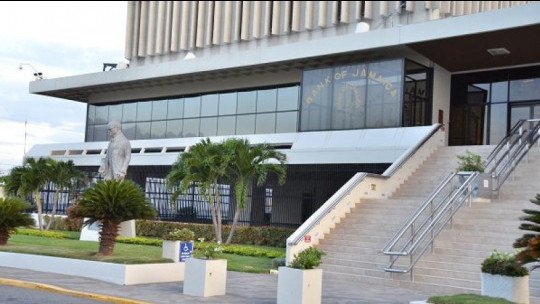Forex Frenzy: Jamaica’s Central Bank Steps In
The hustle and bustle of Jamaica’s economy is feeling the heat as the demand for foreign exchange continues to outstrip supply. This imbalance has prompted the Bank of Jamaica (BoJ) to intervene, a move that has many locals buzzing with opinions and concerns.
A Bold Move by the Bank of Jamaica
On Friday, the Bank of Jamaica made headlines by injecting a hefty US$45 million into the foreign exchange market. This decision came after receiving 42 bids totaling a staggering US$73 million. It’s clear that the appetite for foreign currency is strong, but the bank had to be selective, ultimately accepting only 24 bids at a rate of US$159.99 per US dollar.
“It’s a necessary step,” said financial analyst Marcia Thompson. “With so many businesses relying on imports, the central bank has to ensure that there’s enough liquidity in the market to keep things running smoothly.”
The Ripple Effect on Everyday Life
For many Jamaicans, the foreign exchange situation isn’t just a number on a screen; it directly impacts their daily lives. From the price of groceries to the cost of sending money abroad, fluctuations in the exchange rate can feel like a rollercoaster ride.
“I just sent some money to my cousin in the States, and I was shocked at how much it cost me,” shared local shop owner, Kevin Brown. “Every time I turn around, the rates are changing. It’s tough for small businesses like mine.”
Understanding the Bids
The BoJ’s decision to accept only a portion of the bids reflects a careful balancing act. The bank aims to stabilize the currency while also ensuring that it doesn’t flood the market with too much cash, which could lead to inflation.
“By controlling how much foreign currency is available, the BoJ is trying to maintain a sense of order,” explained economist Dr. Lisa Grant. “But it’s a tricky situation. Too little supply can lead to a black market, while too much can devalue the currency.”
Public Sentiment: A Mixed Bag
Public sentiment around the BoJ’s intervention is mixed. Some citizens appreciate the bank’s efforts to stabilize the economy, while others feel the pinch of rising prices.
“I understand why they did it, but it doesn’t help me when I go to the supermarket,” said Maria, a mother of three. “Everything is getting more expensive, and it feels like we’re stuck in a cycle.”
Looking Ahead: What’s Next?
As the Bank of Jamaica continues to navigate these choppy waters, many are left wondering what the future holds. Will the demand for foreign exchange continue to rise? And how will the central bank respond in the coming weeks?
“Only time will tell,” said Thompson. “But one thing is for sure: the Jamaican economy is resilient, and we’ll find a way to adapt.”
In a world where the dollar seems to hold all the cards, how will Jamaica strike the right balance between demand and supply? The conversation is just beginning, and it’s one that affects us all.

